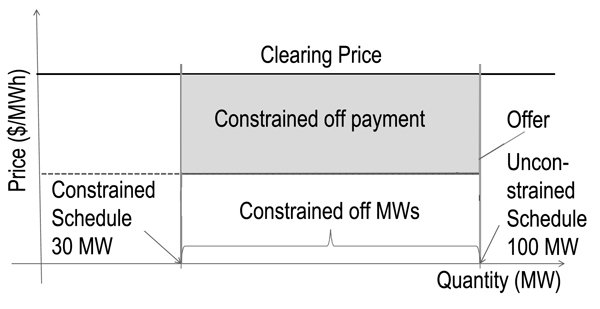Following a report from Ontario’s Auditor General on December 5 that questioned the use of congestion credits, APPrO has released commentary explaining the purpose of the credits and how they create value in the system.

Concern arose when the report of the Auditor General of Ontario was released on December 5. Referring in part to previous comments of the Market Surveillance Panel on Congestion Management Settlement Credits (CMSCs), the Auditor General in his report questioned “why the Board would not be more proactive in ensuring that the IESO gives adequate priority to Panel recommendations.” APPrO’s comments focused on how CMSCs support market efficiency and are part of a system that relies on market functions to minimize electricity prices.
APPrO said it believed that “the IESO has responded in a timely fashion to address issues around CMSCs since 2005. … The total cost of CMSCs has reduced significantly since market start and now represents a relatively small cost to the market as mentioned in the last MSP report at $92 million. That is less than 1% of the total value of trade in 2011. In addition, CMSC payments have been declining significantly since 2005. This is a direct result of improvements made to the market by the IESO working with stakeholders.”
Noting that the “CMSC system is a necessary and legitimate component of generator optimization in the Ontario uniform price model, and is part of an integrated set of market rules and measures to maintain reliability and ensure the balance of supply and demand in every region of the province, and to ensure that ratepayer value results from the operation of the IESO Administered Market” APPrO indicated that the area is not as well understood as might be ideal.
“Any recommendation should be thoroughly stakeholdered with all impacted parties prior to implementation. After effective stakeholdering, the fuller picture becomes clear and the broader implications are understood. Once these additional details (not necessarily known to the MSP) are identified, the best course of action can be determined. The MSP recommendations often identify important issues to delve further into, but the specific recommendations may not always be the most appropriate course of action. It would be wrong therefore to conclude that all MSP recommendations should be implemented without further examination, which is what the AG appears to have done.”
APPrO said it is “strongly opposed to elimination of constrained-off CMSCs but instead recommends further open dialogue between market participants, the IESO and the MSP on the topic of constrained payments and closely related issues such as potential changes to the two-schedule system.”
The organization provided an explanation of how constrained-off payments work, and published a brief paper titled “Why Constrained-Off Payments Should be Maintained”. The paper is available on the APPrO website at this location:
www.appro.org/docs/APPrO_statement_on_CMSCs_Dec_14_2011.pdf
(or see the What’s New page for December 14).
